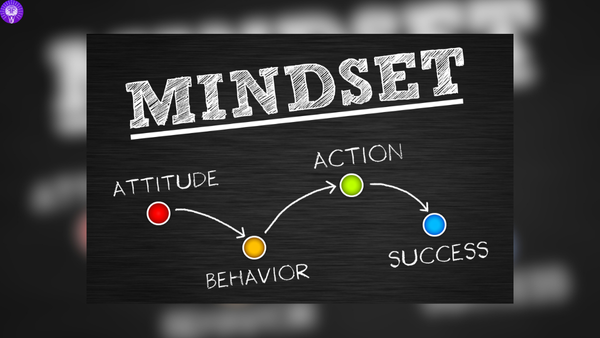What is Mindset?
At its core, mindset is a set of deeply ingrained beliefs, attitudes, and assumptions that influence our thoughts, feelings, and behaviors. It’s the lens through which we view ourselves, others, and the world. This internal framework is largely unconscious, developed over years through our experiences, upbringing, cultural influences, and even genetic predispositions. It’s not a static entity; while foundational, it can evolve and be reshaped with conscious effort.
Think of it like an operating system for your brain. Just as a computer’s operating system dictates how it processes information and runs programs, your mindset dictates how your mind processes experiences and runs your life.
Key Components of Mindset
While mindset is a complex construct, we can break it down into several key components:
- Beliefs: These are the convictions we hold about ourselves, others, and the world. They can be empowering (“I am capable of learning new things”) or limiting (“I’m not good enough”). Our beliefs often operate beneath our conscious awareness but profoundly influence our actions.
- Attitudes: Attitudes are our predispositions to respond in a certain way to people, objects, or situations. They reflect our general outlook, such as optimism or pessimism, and can significantly impact our emotional state and approach to challenges.
- Assumptions: These are ideas or theories that we take for granted as true, often without conscious thought. For example, assuming that failure is a sign of weakness or that success comes only through extraordinary talent.
- Values: Our core values represent what we deem important in life (e.g., honesty, compassion, achievement). While not directly a “component” of mindset in the same way beliefs are, our values often underpin and reinforce certain mindsets.
- Self-Talk: The internal dialogue we engage in constantly. This “inner voice” can be encouraging and supportive or critical and self-defeating, directly reflecting and reinforcing our underlying mindset.
- Attributional Style: This refers to how we explain the causes of events, particularly successes and failures. Do we attribute success to our effort (internal, controllable) or to luck (external, uncontrollable)? Do we view setbacks as temporary (unstable) or permanent (stable)?
How Mindset Affects Your Life
The influence of mindset permeates every facet of our existence:
- Performance and Achievement: A growth mindset, for example, where individuals believe their abilities can be developed through dedication and hard work, is strongly linked to higher achievement in academics, sports, and professional careers. Conversely, a fixed mindset, where abilities are seen as innate and unchangeable, can lead to avoidance of challenges and giving up easily.
- Resilience and Well-being: A resilient mindset allows us to bounce back from adversity, viewing challenges as opportunities for growth rather than insurmountable obstacles. It fosters optimism, reduces stress, and promotes overall mental and emotional well-being.
- Relationships: Our mindset about others influences how we interact with them. A collaborative and empathetic mindset can foster stronger, more fulfilling relationships, while a suspicious or judgmental mindset can lead to conflict and isolation.
- Physical Health: Believe it or not, mindset can even impact our physical health. Chronic stress fueled by a pessimistic mindset can weaken the immune system, while an optimistic and proactive mindset can encourage healthier lifestyle choices.
- Decision-Making: Our underlying beliefs and assumptions unconsciously guide our choices. A scarcity mindset, for instance, might lead to risk-averse decisions, while an abundance mindset might encourage exploring new opportunities.
- Learning and Personal Growth: A curious and open mindset is fundamental for lifelong learning. It allows us to embrace new information, challenge our existing views, and continuously evolve as individuals.
Why Mindset is Important
The importance of mindset cannot be overstated. It’s not just a feel-good concept; it’s a powerful psychological mechanism that dictates our potential and quality of life.
- It Shapes Our Reality: We don’t just react to events; we interpret them through the filter of our mindset. This means two people can experience the exact same event but have vastly different perceptions and emotional responses based on their individual mindsets.
- It Determines Our Potential: Our mindset sets the boundaries of what we believe is possible for ourselves. If we believe we are limited, we will often act in ways that reinforce those limitations. If we believe we can grow and develop, we unlock immense potential.
- It Empowers Us: Understanding mindset gives us agency. While we may not always control external circumstances, we can learn to control our internal responses and interpretations. This is a profound source of personal power.
- It Drives Behavior: Ultimately, our mindset is the precursor to our actions. Our beliefs dictate our feelings, which in turn drive our behaviors. By shifting our mindset, we can fundamentally change how we act in the world.
- It Fosters Resilience: In a world filled with uncertainties, a strong and adaptive mindset is an invaluable asset. It allows us to navigate setbacks, learn from failures, and emerge stronger and more capable.
In conclusion, mindset is far more than a buzzword; it’s a fundamental aspect of human psychology that profoundly impacts every aspect of our lives. By recognizing its power, understanding its components, and consciously working to cultivate a more empowering mindset, we can unlock our true potential, foster greater well-being, and ultimately, shape a more fulfilling life.

